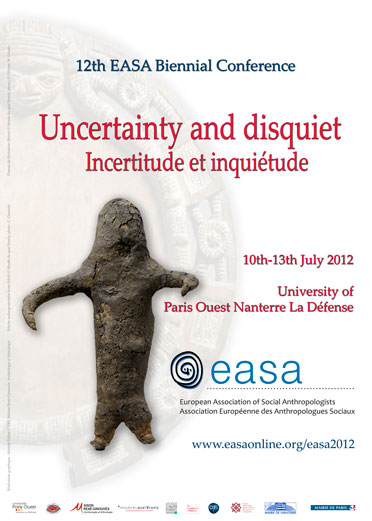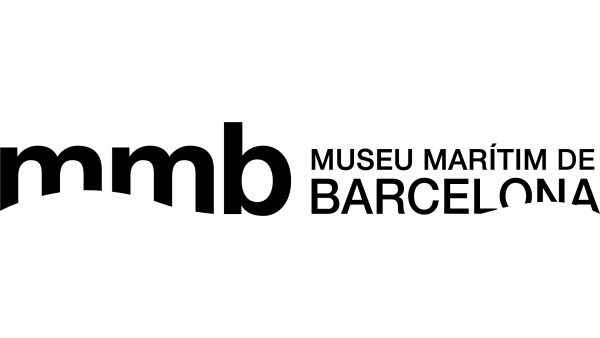All week
Complimentary admission to Musée Quai Branly
MQB were not only partners in organising this conference,but are also home to a wonderful museum. Located on the banks of the Seine at the foot of the Eiffel Tower, the Musée du quai Branly gives the greatest importance to the Arts and Civilizations of Africa, Asia, Oceania and the Americas, a blend of many cultural, religious and historical influences. A place of scientific and artistic dialogue, a crossroads of exchanges between the public, researchers, students and contemporary creators, exhibitions, shows, conferences, workshops and projections are the high points of the life of the museum all around the year.
Wednesday 11th July
Wenner-Gren Grants workshop
The Wenner-Gren Foundation is a unique organization whose primary goal is to support the discipline of anthropology worldwide. The Foundation has a variety of grant programs aimed at funding research and building an international community of anthropologists. This workshop introduced the Foundation’s basic programs, in particular its programs to fund original research (at the dissertation and Post-Ph.D. level) and give advice and tips on what the Foundation is looking for in a research project to help you write a more competitive proposal.
Ethnologie Francaise reception
There was a short presentation regarding the Issue of Ethnologie Francaise on Slovenian anthropology, along with a glass of wine, under the patronage of the Slovenian Embassy in France.
SA/AS & Wiley reception
The editors of the EASA journal and the journal’s publishers invited delegates to a glass of wine at the Wiley book stand.
Roundtables
Europe’s anthropologies and EASA: where do we stand? (in Theatre S3)
Organised by Benoit de l’Estoile (CNRS) and Michal Buchowski (Chair of WCAA)
Confirmed participants: Kirsten Hastrup (Copenhagen), Adam Kuper (London), João de Pina Cabral (Lisbon), Susana Narotzky (Barcelona), Shalini Randeria (Zurich).
The project of devising a meeting ground for European anthropologists emerged at the end of the 1980s, and EASA was created in 1989. Since then, EASA has become a strong institution, that has come to be taken for granted. Meanwhile, the anthropological landscape has changed, in Europe as in the rest of the world. Have we seen the emergence of something like “European anthropology”? Or is EASA just a regional association within “global anthropology”? Does the pooling of different national histories and backgrounds create more than a mere aggregate? Why has it become possible at some point to envision and effectively give birth to such a project as EASA, transcending the national framework while upholding diversity ? What were its effects? What are the conditions for its project to continue making sense more than 20 years later, in a global context modified by the affirmation of non-European anthropologies? What does EASA stand for today in Europe and beyond ? What are the new challenges it faces?
Cruchi-fiction
OUPA presented (une) cruchi-fiction, a performative installation by Charlotte Hébert & Laurent Prost.
In French, ‘cruche’ is what we call that strange object, the jug (or pitcher). A fiction about jugs, is a ‘cruchi-fiction’: how many stories could we tell about jugs? What if there were a place full of jugs, echoing all the sounds and the noises of the world? What if this place was a symbolic one, the setting of funeral rituals risen from the depths of time, from the remote subconscious? A cruchi-fiction is also an chimeric tale of origins, of art and of the world. Like a broken jug glued back from heterogeneous bits and pieces, a cruchi-fiction is a performative installation from various kinds of material: popular songs, metaphysical and anthropological lectures, bruitism, dance, music, and in the foreground the visual and acoustic presence of hundreds of jugs collected from flea markets and junk stores. The audience was invited to cover and discover this place, and participate in an unusual ritual, somewhere between anthropological seriousness and playful obsoleteness.
Thursday 12th July
Pluto reception
The editors of Pluto’s Anthropology, Culture and Society book series invited delegates to some snacks, and to celebrate the publication of Vered Amit and Nigel Rapport’s new book Community, Cosmopolitanism and the Problem of Human Commonality.
Getting published
There was a short talk by James Carrier, EASA Book series editor since 2008, and one of the two SA/AS editors, regarding how to get your books published.
Network convenors meeting
This was an opportunity for those who convene the different EASA networks to get together, face-to-face, along with the President and Secretary of EASA to discuss issues related to the growing number of active networks.
Terrain reception
The french journal Terrain invited EASA members and conference delegates to gather around their book stand and partake of fresh fruits and drinks.
Berghahn reception
The EASA book series publisher invited EASA members and conference delegates to gather around their book stand and partake of a glass of wine.
Applied ethnomusicology: concert/conference
Teaching and performing Javanese gamelan in France
With researchers, teachers and musicians from the Cité de la musique
A gamelan – a traditional musical ensemble from Indonesia – is a collective instrument, made up of elements which cannot be played separately; it combines different percussion devices (gongs, metallophones with bronze keys, and drums), to which may be added a bowed string instrument, a xylophone, a zither, a flute and voice.
Pieces from the gamelan repertoire offer melodic compositions which are shared out between the ten to fifteen players, whose parts are closely interlocked. The successful rendering of a piece thus results from a consensus: the perfect coordination of the musicians, each one only playing a tiny part of the melodic line. The repertoire is rich, complex and calls for virtuosity. But, because of this atomisation of the musical parts, gamelan is also a real laboratory of educational experimentation, allowing neophytes to come close to the inner logic of Javanese musical thinking.
This evening offered a concert/conference to bring out these aspects. It was carried out on the Javanese gamelan ensemble Sekar Wangi (‘Fragrant Flower’). This gamelan belongs to the Cité de la musique, being part of its educational and artistic program since 1993. The pieces presented were from the repertoires of klenengan (concert music), tari (dance) and wayang kulit (shadow puppet theatre).
Conference banquet
This was a lavish three-course meal held in the exquisite Hôtel de Ville de Paris, on the banks of the Seine. Get out of the metro at station ‘Hôtel de Ville’; the entrance to the venue is located at the back of the building, rue Lobeau.
Friday 13th July
Members forum/AGM
All members of EASA were invited to attend this brief business meeting, where the Executive presented their reports and were available for questions from the members. The winner of the EASA book prize was announced during this meeting.


